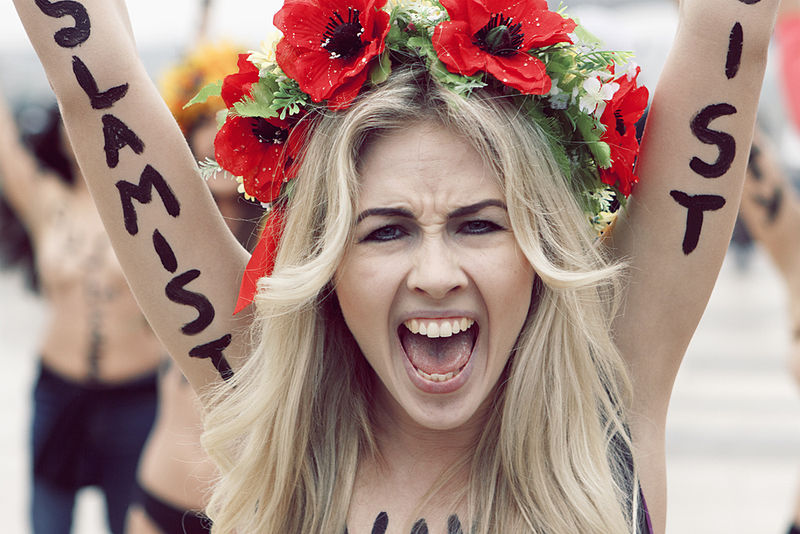'International Topless Jihad Day' Culturally Imperialistic

On its website, FEMEN professes itself to be a “global women’s movement” and the “founder of a new wave of feminism” whose members are “soldiers” who “defend with their breast sexual and social equality in the world.” Its ideology of “sextremism” allegedly celebrates women’s bodies and uses “extreme topless campaigns of direct action” to “undermine the foundations of patriarchy by making disorder and bringing panic to the men’s world.”
FEMEN’s “International Topless Jihad Day” may have accomplished its mission of sending the Islamic world into a state of panic, but its embodiment of feminist militant rhetoric specifically to combat patriarchal prescriptions of morality in Islam revealed the culturally imperialistic and exclusionary foundations of the movement.
Although the protests were staged to voice solidarity with Amina Tyler, an Arab Muslim, the protestors themselves were largely white, European and most likely not Muslim. FEMEN's dissent against bodily oppression of Muslim women by fundamentalist religiosity is justifiable, but it does not consequently give them license to speak for Muslim women. For women who neither subscribe to Islamic beliefs, nor come into regular contact with the Islamic world to take it upon themselves to vividly protest against an issue intrinsic to both is presumptuous. Muslim women justifiably feel that their faith is being disrespected by “outsiders” who are using their plight to advance their own agenda of attacking Islam and the Middle East as misogynistic and archaic.
Baring their breasts in front of mosques and embassies may be expedient in attracting media attention and public response, but this approach both undermines the legitimacy of FEMEN’s message and blurs the line between mainstream and fundamentalist Islam. Protesting before Tunisian embassies does send a specific political message, but it falsely assumes that the Tunisian government itself, of which the embassy is an extension, rather than fundamental Islamists, is responsible for the persecution of Amina Tyler. Regardless of whether or not the protestors agree with the beliefs advocated by Islam or believe in God at all, mosques are holy places of worship and are therefore deserving of respect, out of consideration for all of the Muslim people who do believe in their sanctity. Protesting at mosques also mistakenly communicates that all Muslims, and not just fundamentalists, oppose extended freedoms and public participation for women.
Every religion prescribes some kind of moral code, articulates some standard for a “good, wholesome” lifestyle. Islamic scripture and conventions, like those of all other major world religions, are thousands of years old, invariably extending back to a period when patriarchal norms pervaded every aspect of society. Even with reforms and more liberal interpretations, the faith’s core beliefs may always carry an air of patriarchal subjugation. Islamic values are defined by interpretation of texts and traditions by scholars and clerics. FEMEN’s protest may have been intended to target religious conservatism, but their choice of staging areas skewed that message to make it appear as though they were targeting all Islamic beliefs as misogynist.
FEMEN’s actions to support Amina Tyler against fundamentalist backlash are commendable. But in the process, that goal has been lost in a stifling cloud of cultural imperialism. FEMEN's embodied politics falsely universalize Western feminism and the Western conception of political correctness and apply both to the Muslim world, which in many social aspects could not be more different than the West.
Rather than blindly pushing their agenda through “sextremism,” FEMEN should take care that their activism neither contributes to the culture of Islamophobia currently pervading the West, nor drowns out the voices of Muslim women who are the actual subjects of this cultural struggle.
Reach Contributor Ashley Yang here.



